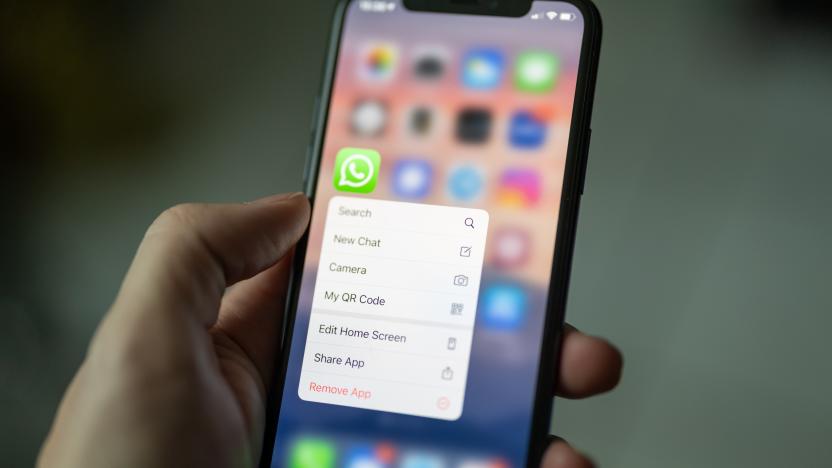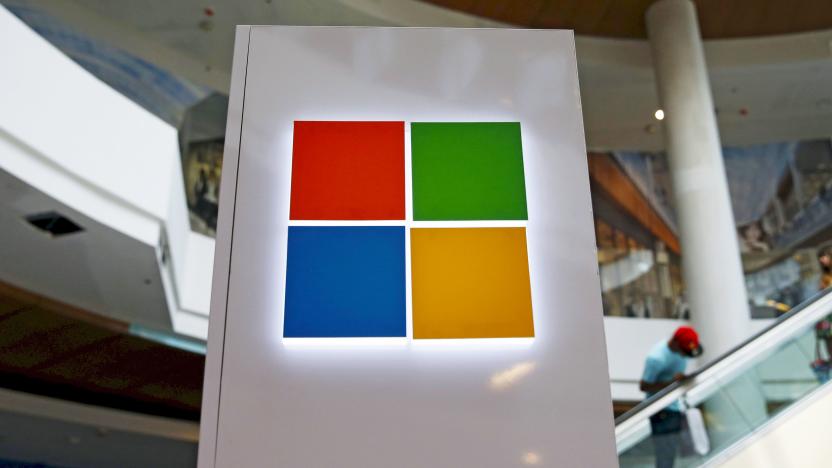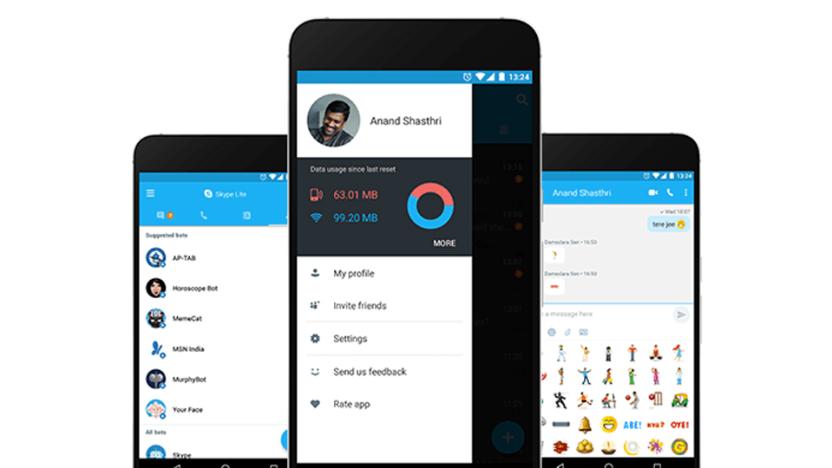compression
Latest

WhatsApp now lets you share photos and videos in their original quality
WhatsApp just released an update that lets iPhone users send photos and videos in their original quality. The tool bypasses compression entirely and sends the media as files.

Windows 11 finally gets native RAR support
Windows 11 is finally getting native rar support, ending the tyranny of third-party apps like WinRAR. It’s part of the open-source libarchive project and can handle multiple file formats beyond RAR, like 7-zip, tar and gz, among others. Microsoft also says the technology allows for more efficient compression.

WhatsApp is adding a 'best quality' setting for sending photos and videos
It's not clear when you'll be able to use it, though.

Netflix switches to the AV1 codec for data-saving streams on Android
Way back in 2015 Netflix announced it would team up with Amazon, Google, Intel and other companies to develop a royalty-free codecs that worked well on modern devices. Two years ago they revealed the fruits of their labor as the AV1 codec, that promised not only freedom from licensing payments they wanted to avoid, but also a saving of up to 30 percent on the amount of data used to stream 4K HDR video. Now, Netflix has started using AV1 on a "select" set of titles, and only for users on Android who've enabled the "Save Data" feature.

Apple tried and failed to break RED's stranglehold on RAW video
RED has claimed victory in the latest battle over its patent on RAW video, this time against a mighty plaintiff: Apple. The dispute started earlier this year, when Apple set out to overturn RED's patent on RedCode RAW in a possible effort to avoid paying royalties on its ProRes RAW codec. A patent court ruled that Apple "has not shown a reasonable likelihood that it would prevail" with claims that RED's original 2007 patent was obvious and shouldn't have been issued in the first place.

Spryng is tech-laced compression wear for speeding up workout recovery
If you wanted to simplify, CES 2019 could be neatly divided into self-driving cars, giant TVs and health tech. A lot of what we've seen of the latter either tracks your movement or is hardware ingrained into workouts. Spryng is a little different, aimed at speeding up your recovery, reducing muscle soreness by stimulating blood circulation. While looking like an unassuming pair of chunky shinguards, these tech-laced wraps expand and contract around your calves, improving blood flow and feeling very nice in the process.

Google's new algorithm shrinks JPEG files by 35 percent
For obvious reasons, Google has a vested interest in reducing the time it takes to load websites and services. One method is reducing the file size of images on the internet, which they previously pulled off with the WebP format back in 2014, which shrunk photos by 10 percent. Their latest development in this vein is Guetzli, an open-source algorithm that encodes JPEGs that are 35 percent smaller than currently-produced images.

Microsoft creates a low-data version of Skype for India
Skype's place as the original gangster of internet messengers means that it's never had to watch its weight, until now. Microsoft has put the app on a diet to announce Skype Lite, a slimmed-down messenger designed for countries like India. You'll win no prizes for guessing that the Android app will heavily compress images and video and is intended to work reliably even on India's 2G wireless infrastructure.

Netflix updated its video encoding to make downloads look better
From time to time, Netflix updates the technology it's using to convert and compress each of the digital copies of movies it streams to customers. Because people watch from so many different platforms, in so many different situations, it has to be ready for any number of possibilities. Late last year, it revealed the use of a smarter way to apply compression, recognizing that different types of content (animation like Bojack Horseman vs. dark action scenes in Daredevil) need different levels of bitrate or resolution to look their best. Now it's focused on enhancing the efficiency of compression, starting with the video it delivers to mobile devices.

Google's latest data-squeezing algorithm is coming to Chrome
Google is no Silicon Valley startup, but it's just as intent on creating compression algorithms as the fictional "Pied Piper." The search giant is about to unleash its latest algorithm, called "Brotli," onto the Chrome browser. The software compression team first revealed the algorithm in September, saying that it was 20 to 26 percent more efficient than Zopfli, an algorithm it launched only three years before. Google says that Brotli is a "whole new data format" that squeezes in more data than other compression formats, while decompressing at comparable speeds.

Flickr's new image compression was almost invisible, until it wasn't
Ugh, it's all pixelated. Ugh, artifacts. Compression is otherwise a pretty useful trick for squeezing more stuff (photos, video and more) into less space, but something typically gets lost in the process. Sometimes it's indistinguishable, other times it screams at your eyes, offending your gentle sensibilities -- or something. Usually, however, it's somewhere in the middle, which was Flickr's problem. The photo service offers users 1TB of free storage at original resolution -- which is still good going, but users started to notice a change in compression used for the various image sizes it also offers: smaller files but bigger issues with artifacts and details lost. That said, Flickr made the changes in late 2014, but it wasn't until much more recently (alongside a recent redesign) that eagle-eyed users began to notice that something had changed.

Xiaomi's global devices to get Opera's data-saving tech
Following yesterday's announcement on Opera Max supporting YouTube and Netflix, today the company revealed that Xiaomi's latest Android fork, MIUI 7, will have the same data-saving technology baked into its Data Saver feature. According to Xiaomi, this can reduce data usage across all apps by up to 50 percent, though encrypted connections are still left untouched. While Data Saver has already been on Xiaomi's China devices for about a year, it'll be a first for global MIUI users, though they'll have to wait for a few more months. That said, other features such as "up to 30 percent faster response time," "10 percent better battery life" and face recognition in photo album will be available right away. All global Xiaomi devices except for Mi Note and Mi Pad can grab the update on August 24th.

Opera Max saves data on YouTube and Netflix
Until now, one of the limitations with the Opera Max Android app is that it doesn't compress encrypted connections, which is probably a good thing except that many video platforms use HTTPS. That's no longer an issue with the software's latest release, which can now optimize YouTube and Netflix video streams over HTTPS "without any significant loss in quality." This means there's less buffer time, and you can binge-watch more viral clips within the same data allowance. But Opera isn't stopping there, as it's already working on bringing more secured video services and social apps -- including Facebook and Snapchat -- on board, so stay tuned.

Microsoft has a trick for making holograms from live video
We've seen Microsoft's HoloLens do an awful lot of different things so far, but Halo, Minecraft and even medical applications are just scratching the surface of what the augmented reality headset is capable of. In a new research paper, Redmond outlines how it plans to grab live video that'd work as fodder for the device's holographic capabilities. Perhaps most importantly these holographic video feeds would be streamable over the internet, as Road to VR points out. By taking advantage of some 106 RGB and infrared cameras and a green screen, Microsoft says that it's able to capture, compress and recreate pretty lifelike results.

Google brings data compression from mobile Chrome to PCs
Google has offered an option to reduce the amount of data Chrome uses on Android and iOS for a while, and now it's rolled out an extension to do the same for desktop users. Just like the mobile option, it works by compressing the data on Google's servers first -- click here for more info on how it works -- before sending it on, and claims some pages can be reduced in size by as much as 50 percent. VentureBeat spotted Data Saver (beta) in the Chrome Web Store, where the description notes that just like on mobile, it doesn't intercept SSL-protected or Incognito tabs to protect user's security and privacy. Proxy-based compression is hardly a new concept, but if you're a heavy Chrome user then now you have a Google-powered option, especially if you're on a tethered connection or somewhere else it pays to be bandwidth-conscious. [Image credit: Bloomberg via Getty Images]

Opera's web compression app can now save you some Vietnamese dong
After eight months of beta testing, the Opera Max web compression app is finally getting a launch partner, and it happens to be in Vietnam. Opera's joining forces with local carrier Mobiistar to have the app preloaded on select Android devices (Lai504m, Bean414 and Prime508). By way of multimedia content plus text compression, the service claims to save up to 50 percent of data bandwidth -- it's all visualized in the app for your viewing pleasure. For those outside of Vietnam, you can still install the beta app and try it out in the US, Europe, Brazil and Russia; or try the customized version of Opera Max if you're in China.

EVE Evolved: Mining is broken, but it can be fixed
Mining has a reputation for being the most boring activity in EVE Online, but it's always filled a niche role as a low-effort way to make ISK and play with friends casually. When there's no PvP going on and you can't give your full attention to smashing NPCs in missions or anomalies, mining fills that downtime with something more lucrative and social than spinning your ship in a station. The problem is that mining has slowly become obsolete over the years; alternative mineral sources now supply much of the market's needs, and the risk of flying a defenseless barge just isn't worth the mediocre payout. It's currently more efficient for an individual to buy minerals with ISK made via some other form of PvE, such as level 4 missions or incursions. And on the macroscopic level, such huge quantities of minerals hit the market from alternative sources such as reprocessing loot that the economy could potentially function with no miners at all. CCP has tried to make mining more appealing over the years with buffs and new ships, and the devs recently announced plans to nerf mineral compression as part of a campaign to make mining worthwhile, but I think it'll take a lot more than ISK to get people mining again. In this week's EVE Evolved, I look at how mining and reprocessing are at odds and suggest some ideas for new mining features that could revitalise this long forgotten profession.

Mozilla to improve web page load times through image trickery
Ever tried loading websites full of selfies and filtered food images on a shabby connection? If your answer is yes, then you know it always leads to tears and frustration. Good thing Mozilla's got your back -- the non-profit behind Firefox just announced a project called mozjpeg, which aims to shrink JPEG file sizes for faster-loading web pages. To get the ball rolling, the group made a fork of an existing JPEG codec (libjpeg-turbo) and threw in a feature that crunches photos without affecting quality. That gave rise to mozjpeg software version 1.0, which successfully shrunk the file sizes of 1,500 JPEG photos by an average of 10 percent during a test run. It even worked on PNG images, though it was a lot less effective and only managed to shave 2 to 6 percent off their sizes.

ZipShare from WinZip lets you manage all your cloud storage from one place
WinZip's long been the go-to .zip file manager for many PC users, but no longer is it just a tool for freeing up some hard drive space. The desktop client embraced cloud storage around the same time it tiptoed into mobile, and now it has a new service based entirely on the web. ZipShare, currently in beta, is a portal for managing data you keep in the cloud on platforms like Dropbox, Google Drive, Box, OneDrive and others. Through the ZipShare site, files uploaded to cloud services are automatically compressed, and can be password protected. They can then be shared by means of an URL, which you can publish straight to social networks, and downloads of that file can subsequently be tracked. Being able to access all your files also means you can easily manage and move them between different storage providers. It's not the best it can be on mobile devices just yet, but should be when it drops the beta tag within the next few months. Go check it out for yourself before that happens, though: all advanced features are currently free, but could cost up to $10 per month when the service launches for real.

Chrome updates bring data compression to all Android and iOS users
Google has been testing data compression in mobile versions of Chrome for what seems like ages, but today it's finally ready to bring that efficiency to the masses. Both the Android and iOS versions of the browser now let all users squeeze website content to reduce their data use -- and, in some cases, their phone bills. There's also a pair of platform-specific upgrades in the pipeline. Android fans will get to create web shortcuts on their home screens, while iOS users will see the automatic translation bar that has been available on Android since last year. Whichever version of Chrome you're running, you'll want to grab its latest update through one of the source links.












